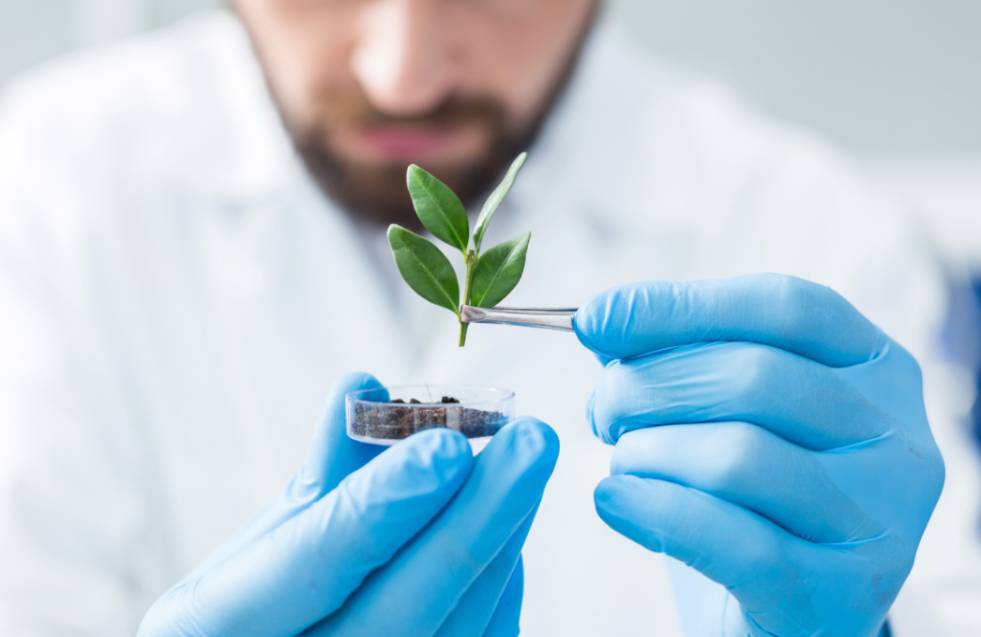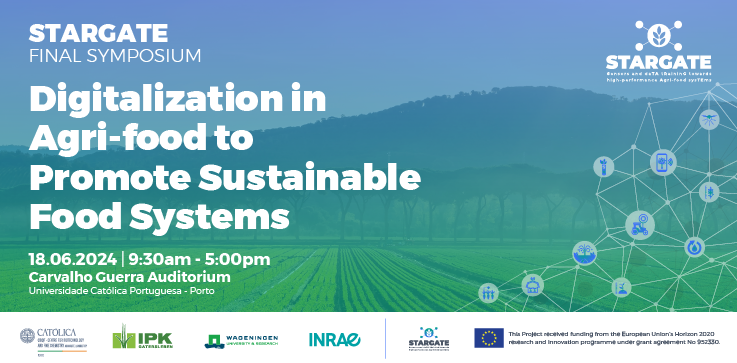




About the project
The need for traceability throughout the entire chain and the meticulous control of the first step in the production chain, selecting and controlling the best crops, is a decisive approach to assure that premium food arrives to the consumer and to avoid high food losses.




Centre for Biotechnology and Fine Chemistry within the consortium
News and Events
STARGATE Final Symposium | 18th June 2024 | UCP, Porto, Portugal
OBJECTIVES
Strengthen scientific excellence at CBQF
Strengthen scientific excellence at CBQF in the use of phenotyping, multi-omics, signal and image data management and analysis tools and development of predictive models for crop performance towards food chain decisions.
> 5 Workshops on selected scientific themes;
> 3 Training Schools;
> Train at least 20 ESRs from UCP and 10 ESRs of each partner via hands-on training in STSM (short-term scientific missions, empowering the future professionals in this emerging field.
Strengthen innovation capacity and interactions with industry
Strengthen innovation capacity and interactions with industry, promoting CBQF’s autonomy to collaborate with farmers and industry in this area, performing early stages monitoring of agri-food production systems to understand and improve performance in downstream steps of the food chain, promoting advanced innovation transferable to the agri-food sector.
> Dedicated STMS enabling staff and ESRs to implement techniques at UCP;
> Implementation of new techniques at UCP in real scenarios;
> Training in knowledge transfer skills;
> Mapping of key stakeholders at regional, national and European level;
> Increase number of collaborations with industry.
Boost competencies in research management
Boost competencies in research management, communication, and proposal preparation, to maximize the impact of CBQF’s activities and improve success in securing international funding.
> Workshop in research management, grant writing, knowledge transfer, and communication skills;
> STSMs for UCP staff on research management;
> Guidelines for the implementation of best practices on R&D&I management;
> Reinforce the capacity to secure international funding.
Establish the foundation for the STARGATE Knowledge Hub
Establish the foundation for the STARGATE Knowledge Hub in Portugal, bringing together transdisciplinary expertise, to exploit and realize the potential of sensor-based, signal, image, and multi-omics data, towards sustainable food systems, fostering innovation and partnerships with the private sector.
> Establish the STARGATE Knowledge Hub between the consortium and stakeholders that assure a complete representation of the agri-food system where the knowledge will impact;
> Create a webpage with information on competencies held and available technologies in the field;
> Organise one gaps mapping workshop with at least 15 farmers/industrial/retail stakeholders to ensure codesign of the Knowledge Hub structure and mission;
> Final Symposium - the innovation capacity within the STARGATE Knowledge Hub.



